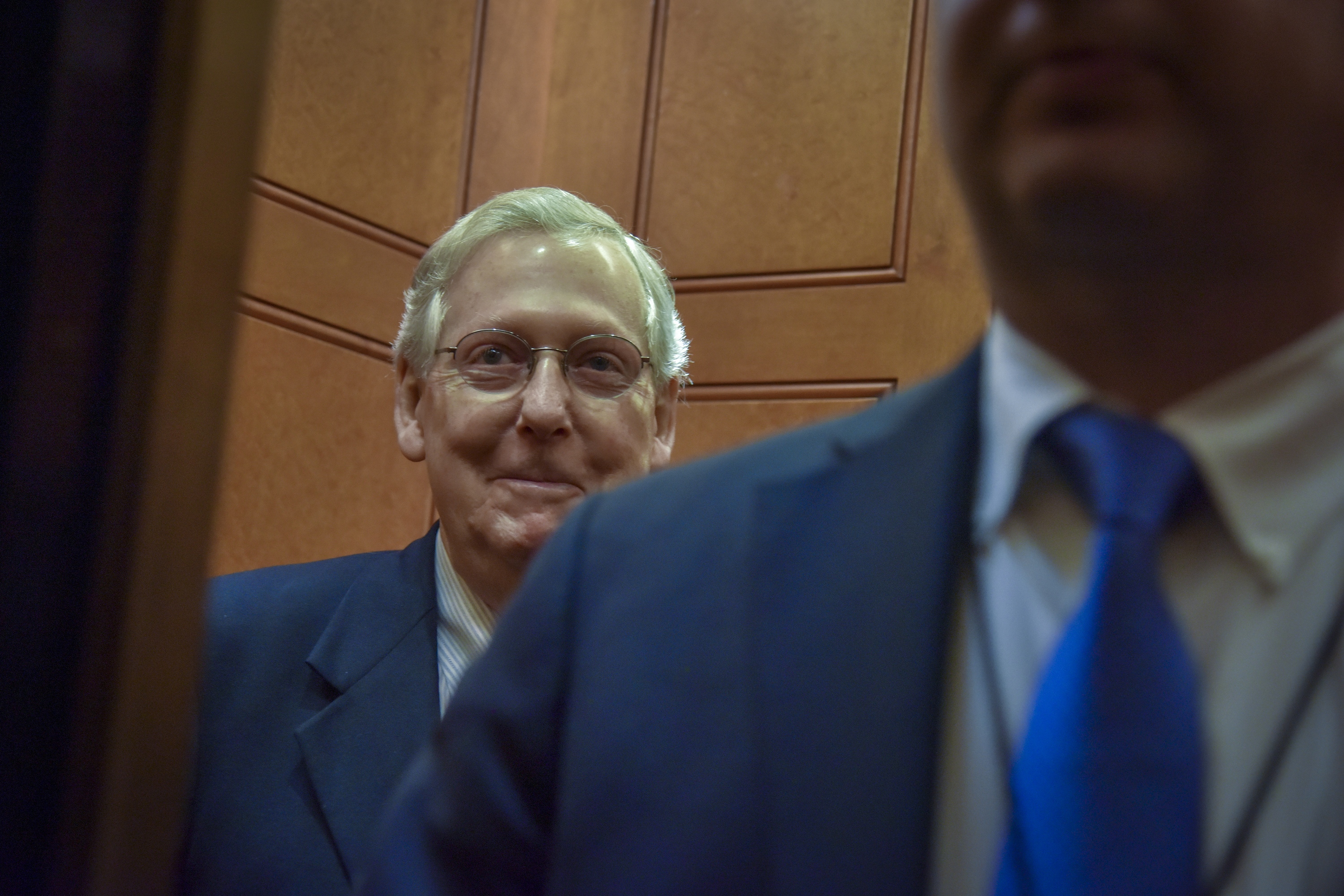The Shutdown Is Mitch McConnell’s Fault

Credit to Author: Harry Cheadle| Date: Mon, 07 Jan 2019 19:26:21 +0000
As the federal government’s partial shutdown enters its third week, the effects are beginning to pile up, the human toll coming into sharper focus. Toilets in national parks are overflowing without anyone to clean them, the food stamp program will soon be at risk of running out of funds, tax refunds may go unpaid, and some civil courts could have to stop functioning as they run out of money.
Perhaps worst of all: Around 800,000 federal workers are either not working or working without pay, and many of them are worried about paying their own bills. Everyone from FBI agents to airline pilots has been asking Donald Trump and Congress to reach an agreement and reopen the government. But the president is refusing to relent on his demand for $5 billion to fund a border wall, instead threatening vaguely that the shutdown could last years.
It’s Trump’s insistence on a wall that has manufactured this crisis, and it’s the White House that has been leading negotiations with Democrats in Congress. But even if it feels like Trump is holding the government hostage to get his wall, he can’t do it alone—Republicans, and in particular Senate Majority Leader Mitch McConnell, could restore what passes for normality in this era any time they wanted to.
The US has weathered government shutdowns before, but the circumstances of this one are particularly embarrassing. In December it seemed likely that Congress would do what it had done before to avert a shutdown and pass a short-term spending bill to keep the government open; the Senate easily passed such a bill without including money for the wall. But the House didn’t take up that bill and instead moved on a bill that purported to fund a wall. The embarrassing part is the new Democratic House passed a non-wall spending bill last week, but McConnell has refused to do what he did last month and introduce a shutdown-ending bill. He called the Democrats’ bill “political theater” and said just before its passage, “The Senate will not take up any proposal that does not have a real chance of passing this chamber and getting a presidential signature. Let’s not waste the time.”
This is a flagrantly dishonest bit of positioning, even by McConnell’s low standards. Trump could of course veto any spending bill passed by Congress, but a two-thirds majority could override his veto and end this stalemate. The only thing that’s required is a bit of courage on the part of Republicans.
For such a veto override to take place, 55 Republicans in the House and 20 in the Senate would have to join with the Democrats and defy Trump. That kind of reaching across the aisle is rare these days, but many Republicans are openly frustrated with how Trump is handling this situation and some have called for reopening the government or at least funding the Department of Homeland Security. (Other portions of the government have been funded by previous piecemeal spending bills.) Republicans are fed up with Trump on other issues, with some criticizing him for his announced withdrawal from Syria and new Senator Mitt Romney blasting his low morals in a Washington Post op-ed.
The public isn’t happy either. Initial polls found the public blamed Trump for the shutdown, but subsequent polls contained evidence that people also blamed Congress—in one recent survey, 58 percent of respondents disapproved of Republicans’ handling of the affair, compared to 51 percent disapproval for Democrats. Trump may not care if large swathes of the country hate him—so what else is new?—but Republicans who aren’t attached to his wall in the first place likely don’t love seeing their own numbers tanking because of the impasse.
Given that dynamic, it’s clear why McConnell wouldn’t want to bring any wall-free spending bills to the Senate floor—that would force Republicans to choose between keeping the government closed or angering Trump by voting against him. But the alternative—the path that McConnell has evidently chosen—is to embrace rank partisanship by holding Trump’s line and forcing some government employees to work without pay in support of a wall most Americans don’t even want.
Just after Democrats took back control of the House, McConnell wrote an op-ed praising bipartisanship and promising that Senate Republicans “will continue our commitment to delivering results.” Unsurprisingly, a man who has made his career being one of the most committed and effective partisan operators Washington has ever seen has not exactly lived by those words. He has a chance here to work with Democrats to deliver results and do real good by solving all the problems created by the shutdown while at the same time demonstrating that the Republican Party is more than a collection of mostly white men who fall in line with Trump’s every whim.
Instead, he’s doing the exact opposite, stalling a vote to demonstrate total fealty to the president and his wall, damaging the lives of real people in the service of political posturing. Trump is mercurial and prone to do a great deal of damage in the service of his half-baked objectives—as usual. And as usual, the Republicans could step in to mitigate that damage. They just won’t.
Sign up for our newsletter to get the best of VICE delivered to your inbox daily.
Follow Harry Cheadle on Twitter.
This article originally appeared on VICE US.